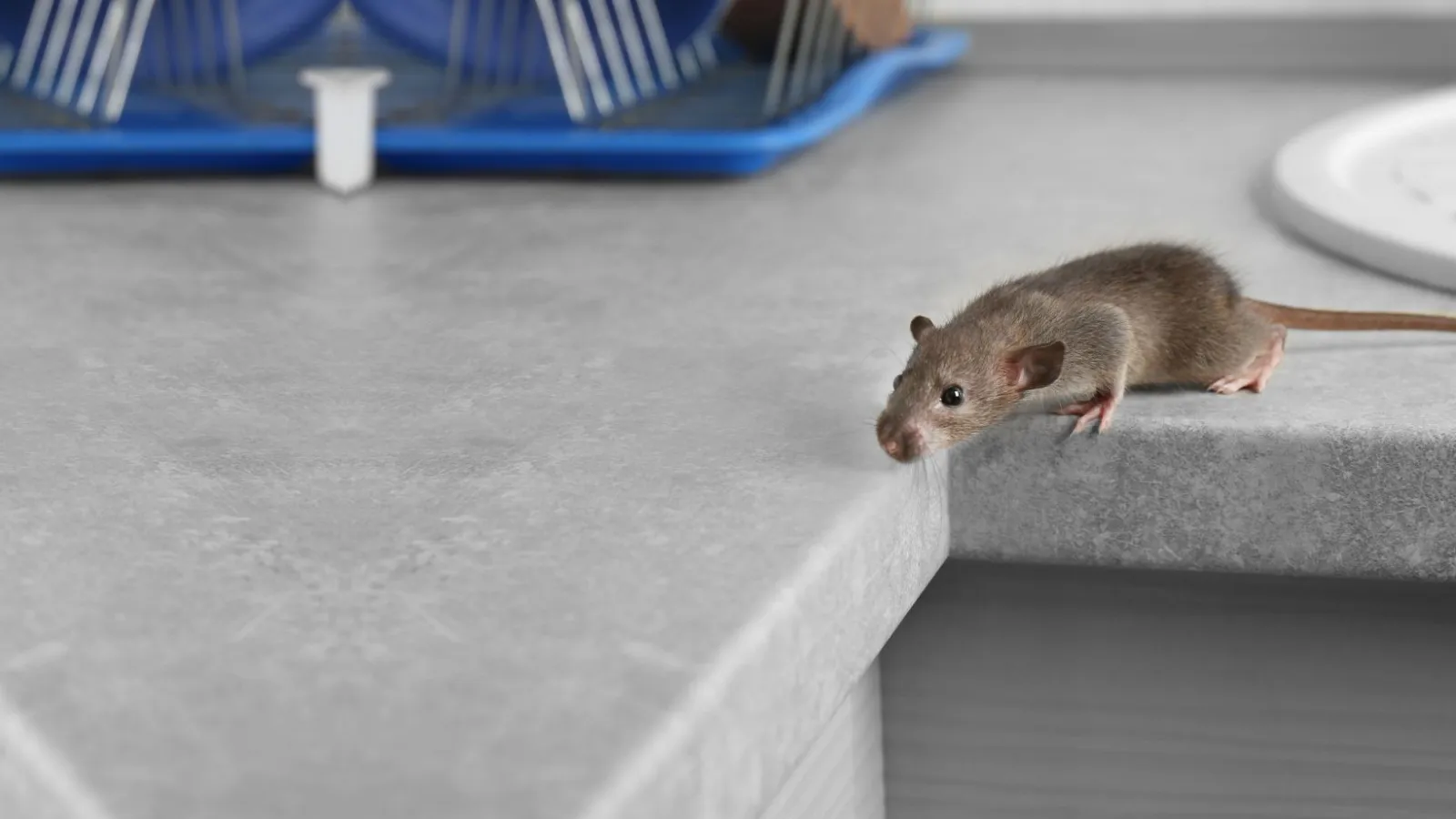
House Mice
Latin Name: Mus musculus
House mice are incredibly resourceful when it comes to finding shelter, especially during the fall and winter months when they seek warmth and food. These rodents can squeeze through openings as small as ¼ inch, making it easy for them to slip into your home unnoticed. Common entry points include:
- Gaps in doors and windows
- Cracks in the foundation
- Vents and utility lines
- Openings around pipes or wiring
Once inside, house mice settle in attics, basements, and wall voids—anywhere they can stay hidden and close to food sources. House mice tend to invade homes as the weather cools down, typically in the fall and winter months. However, they can also enter at any time of year if there are readily available food and shelter sources inside. Homes with easy access to garbage, pet food, or poorly sealed food storage are prime targets for house mice.
The Damage House Mice Can Cause
Some of the most common problems include:
- Chewed Wires: Mice constantly gnaw on materials to keep their teeth sharp, which includes electrical wiring. This can lead to electrical fires or malfunctions.
- Contaminated Food: House mice can chew through food packaging, contaminating pantry items with their droppings and urine, which can lead to serious health risks like salmonella and hantavirus.
- Structural Damage: Mice will chew through drywall, insulation, and even wooden structures, which can result in costly repairs.
- Health Risks: In addition to contaminating food, house mice can spread diseases through their droppings, urine, and nesting materials, putting your family's health at risk.
How To Prevent Mice From Entering Your Home
Preventing a house mouse infestation is always easier than dealing with an active one. Here are some tips to keep them out of your home:
- Seal Entry Points: Inspect your home for any cracks, gaps, or holes and seal them with materials like steel wool, caulking, or metal mesh.
- Keep Food Sealed: Store all food, including pet food, in airtight containers. Clean up spills and crumbs immediately to avoid attracting mice.
- Eliminate Clutter: House mice love to hide in clutter, so keeping areas like basements, attics, and storage rooms tidy can make your home less inviting.
- Proper Waste Management: Ensure trash is stored in sealed bins and take it out regularly. Compost piles and bird feeders should be kept away from the house as they can attract rodents.
- Trim Vegetation: House mice can use overgrown bushes, trees, or shrubs as pathways to access your home. Keeping vegetation trimmed and away from the exterior walls helps deter them.
Don't let their small size fool you—house mice can cause significant damage.
